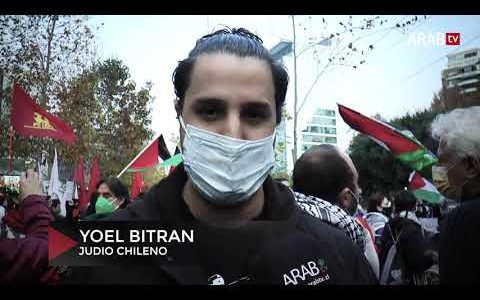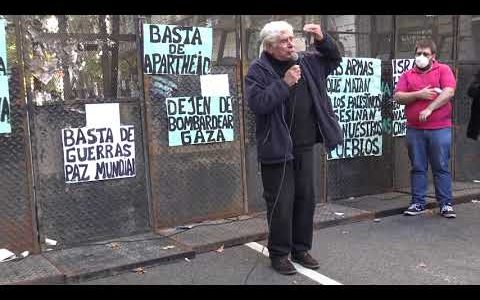Posted on YouTube: May 19, 2021
Can you image that in the U.S. Senate?
NO WAY!
The Palestinians in Chile have clout.
Senator Alejando Navarro, a leftist senator, started by mentioning how bad conditions in Gaza were. Then he noted that there was talk of a conquest of Gaza. Then the Senator put forth a request to remember the victims of both sides.
The president of the Senate approved the motion to remember the dead civilians and children of the Israel-Gaza war, but he kept the tone diplomatically neutral by re-stating that the moment of silence would be for the victims of all sides.
However, the Palestine Federation of Chile labelled their video on YouTube as if the Chilean Senate was honoring the Gazan victims – without mentioning that the moment of silence also remembered Israeli victims.
Make no mistake, the Palestine Federation of Chile is powerful in Chile. Even non-Arab-Chileans will yield to its influence.
One prominent Jewish Chilean has spoken in the past about the Palestinian-Chilean community’s power …
Source: Police in Chile guard Jews after anti-Semitic attacks – JPOST
August 18, 2010The Palestinian community is to Chile what the Jewish community is to the U.S.
– Gabriel Zaliasnek, then president of Chile’s Jewish Federation
Remember that Chile is not a third-world dictatorship, but a borderline first-world country with a functioning democracy. It is a trend setter in Latin America.
Such pro-Palestinian sympathies in a Western democracy is troubling.
Both the Israelis and Jewish groups have started to notice this.
The World Jewish Congress posted this on YouTube last year:
Posted on YouTube: July 1, 2020
Jewish groups are not happy with Chile.




